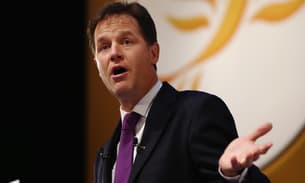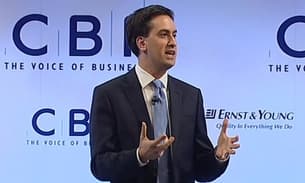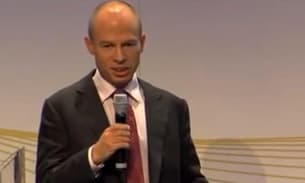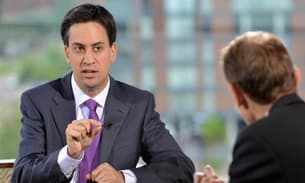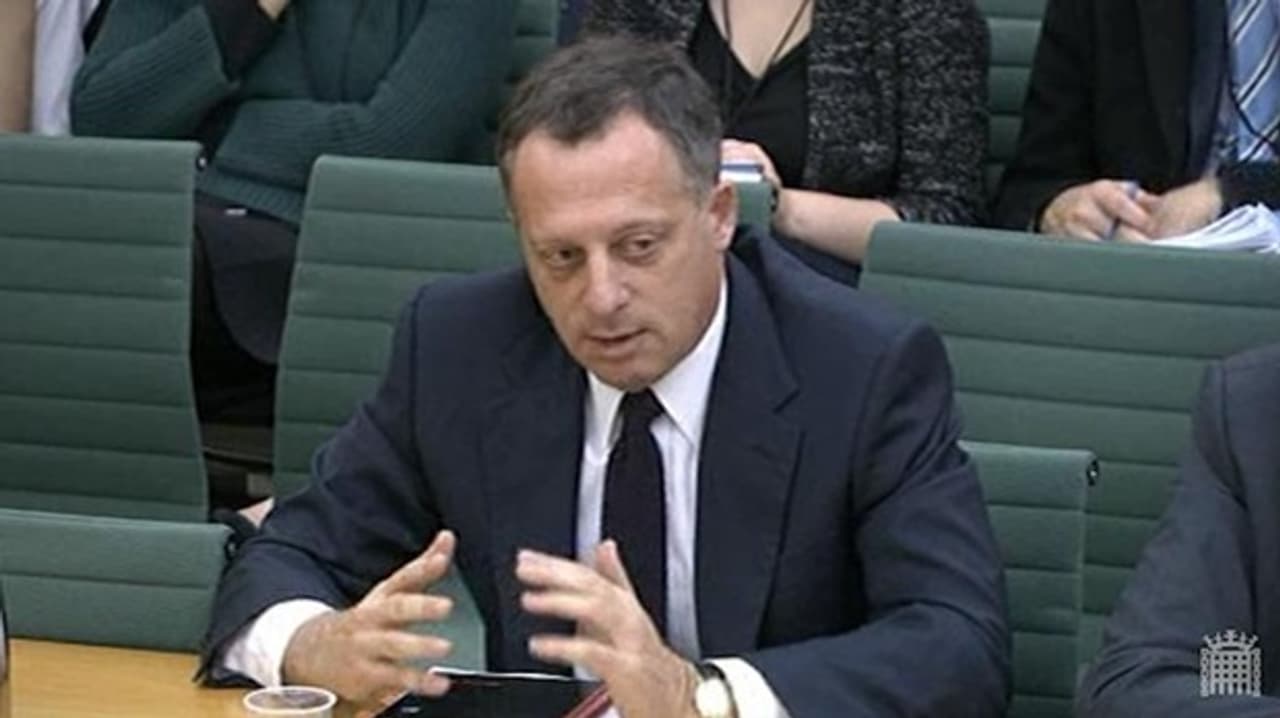
Bank of England denies key adviser Richard Sharp breached rules in attending fundraiser
Richard Sharp: Bank of England denies rule breach (above)
Fresh concerns may be raised about a multi-millionaire former Goldman Sachs banker, who was controversially appointed to sit on the Bank of England’s most senior regulatory committee by George Osborne last year.
Documents obtained by the Bureau reveal that Richard Sharp, who was appointed an external member of the Bank’s Financial Policy Committee, FPC, attended the Conservative fundraising party last summer just weeks after giving assurances to parliament that he would not let his past political connections compromise his independence.
The Bureau can further reveal that the banker, who has donated more than £402,420 to the Tories, has since become a partner in Roundshield, a firm that lends to distressed businesses and buys assets from them, including residential property, care-related real estate and agricultural machinery.
Sharp’s position as one of four partners in this commercial venture may raise fresh questions about his access to privileged and confidential Bank papers on UK financial stability and mortgage lending.
– Richard Sharp
His appointment on the FPC, a committee that advises the Bank on the UK’s financial stability and makes recommendations on mortgage lending, was one of the most politically-charged appointments to Threadneedle Street by any chancellor since Gordon Brown announced in 1997 that Bank of England should operate independently of Westminster influence.
Mr Sharp’s political independence was questioned at the time of his appointment and further raised by members of the Treasury select committee at a hearing just weeks before the summer party.
‘I intend to be, and will be, completely independent in fulfilling my duties as a member of the FPC [financial policy committee],’ Richard Sharp told the Treasury select committee when asked about past links to the Tories. ‘Having been a donor to one party, I think it is perfectly legitimate for this question to be asked. I can give you my assurance that I will be independent.
‘All I can tell you is that I will be observed … and I will be accountable to you,’ he added.
Despite some MPs’ concerns about how Mr Sharp, worth an estimated £100m, would be able to demonstrate his political independence, the Treasury select committee did give its blessing to the appointment last year. ‘We are satisfied that Mr Sharp has the professional competence and personal independence to be an external member of the FPC,’ they concluded.
New questions raised
However, his latest commercial role raises potential new questions.
The Bank of England’s code of conduct stipulates that members must demonstrate they have no financial or other interests ‘that could give rise to a perception that the individual concerned could not be wholly independent, disinterested and impartial.’
Ann Pettifor, director of PRIME, an economic think tank which provides an understanding of the nature of credit, said: ‘It is wholly inappropriate that a person providing paid advice to a national bank on how to maintain financial stability should be a partner in a firm which might stand to benefit from such instability, or be perceived as so doing.’
Karel Williams, professor of accounting and political economy at the University of Manchester, said: ‘Elite players like Richard Sharp build their careers from multiple roles as they move between institutions. The result is conformist groupthink spiced with conflicts of interest.’
In light of Sharp’s new role he may be asked to explain himself again. Labour Treasury select committee member John Mann called on Mr Sharp to stand down from the FPC. ‘These actions are more proof of just how totally unsuitable he is to be a member of the FPC,’ he added.
– Ann Pettifor, director of Prime
The FPC’s primary objective is ‘identifying, monitoring and taking action to remove or reduce systemic risks with a view to protecting and enhancing the resilience of the UK financial system.’ The FPC’s second objective is ‘to support the economic policy of the Government’.
The Bank of England was asked to comment on whether there was the possibility of a ‘perception of a conflict of interest’ in relation to Sharp’s position at Roundshield.
The Bank declined to comment specifically on the possibility of a perception of a conflict of interest. A Bank spokesman said: ‘Richard Sharp has been completely open about all his business and political interests. He has given evidence to a parliamentary committee about his previous political donations, and has not donated to a political party since joining the FPC. There is a need to have business practitioners on this Committee. Members are required to report their personal investments and business interests to the Bank. Richard Sharp has done so. The FPC Code of Conduct was drafted to ensure that conflicts of interest would be avoided, and the Bank does not believe that Richard Sharp has breached the Code.’
The position does not appear on Mr Sharp’s biography on the Bank of England’s website, but a spokesman said Mr Sharp had disclosed his role in Roundshield Partners to the Bank.
Until earlier this month, Mr Sharp was also chairman of lobbying and public relations group Huntsworth, which is run by Conservative donor Lord Chadlington, chair of the prime minister’s constituency party.
Huntsworth is better known in City circles for its trading brands, Citigate Dewe Rogerson, Grayling and Red. The group’s Quiller Consultants lobbying division last year hired one of David Cameron’s closest former special advisers in Number 10, Sean Worth, who in opposition had been head of the Conservative party’s policy unit.

